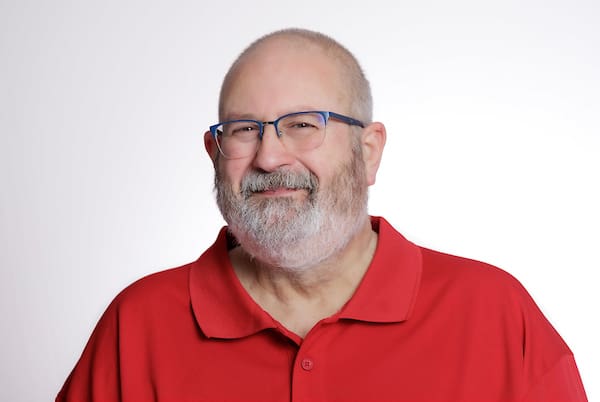Golden Years: Longtime Criminal Justice Professor Will Enjoy Retirement after 30 Years of Service at UA Little Rock

Dr. Jim Golden has been a familiar figure at the University of Arkansas at Little Rock since 1994. In the summer, this criminal justice professor and administrator will start his true golden years as he retires from the university after 30 years of service.
In 1994, Golden started his UA Little Rock career as a research coordinator at the Criminal Justice Institute. He has gone through the ranks of professorship and a term as graduate coordinator. He will retire in June as head honcho of criminal justice, serving out his final year as interim director of the School of Criminal Justice and Criminology.
“I’ve been fortunate that I stayed in one place for a long time,” Golden said. “My greatest achievement would be that I tried to give back to my university, my community, and my discipline. I had a lot of great students along the way. I’ve been around long enough to have had students who were children of former students. It’s been a lot of fun.”
Many of Golden’s co-workers had great things to report about his time at UA Little Rock.
“I’m happy that I’ve had the pleasure of working with Jim for the past eight years,” said Dr. Robert Lytle, associate professor of criminal justice. “His joy for community-facing research and collegiality have been important for what was, when I first started, a pretty young faculty. Whenever junior faculty and graduate students get lost in the trees of the job, Jim was particularly good at reminding us there is more to the forest of scholarship and education.”
Over the years, Golden has taught everything from research methods and statistics to cybercrime and terrorism classes. Golden developed a reputation as the guy who would teach any subject, remarking that his overall favorite class was called Disorganized Crime, which looked into gangs and disorganized crime.
“I’ve kind of been the guy that would take a stab at teaching classes that nobody else wanted to teach,” he said.
After spending three years in the U.S. Army, Golden started his criminal justice career, not as an academic, but as a police officer in Jonesboro. By 1985, Golden was a detective sergeant, but his parents, who had bought a police scanner to monitor crime in the area, had already started a campaign for Golden to move into the safer world of academia.
“There was an opening for an instructor position at Arkansas State, and I was approached by the chair of the sociology department,” Golden said. “A lot of my mentors sat me down and told me that I could stay in the department and wait for someone to die until I got a promotion, or I could go to Arkansas State where I could have a positive impact on many more people. It was a conspiracy!”
After four years as an instructor, Golden headed to Sam Houston State University to earn his Ph.D., where he and his wife ended up renting an apartment from a woman who had taught Golden’s father when he attended graduate school at the University of Arkansas. Golden’s father subsequently served as one of his inspirations for becoming a professor.
“I’m a second-generation college professor,” Golden stated. “I started teaching at Arkansas State in 1985 and was fortunate enough to spend two years on the faculty with my father, who taught counselor education and psychology.”
Funnily enough, Golden seems to come from a family that aggregates doctoral degrees. Golden, two of his siblings, and three of his first cousins all hold doctoral degrees.
“I don’t know what was in the water in Greenway, Arkansas, (Golden’s father and sister’s hometown) but it’s unusual to find six first cousins with Ph.D.s or M.D.s,” he said.
In addition to his father, Golden identified two of his co-workers, the late Dr. Charles Chastain and Dr. Mary Parker, as the people who have most influenced his career.
“They have both influenced how I have taught and a lot of what I have taught more than anyone else,” Golden said. “With both Charles and Mary, I could go to them and ask them questions about anything. In fact, my management style this year as interim director has been 100-percent based off Mary Parker’s style of leadership.”
Parker, a professor of criminal justice, also had good things to share about her time working with Golden.
“It has been an honor and a privilege to work with Jim for a lot of years (neither of us is saying how long),” Parker said. “He is the perfect combination of professional and academic, and he has had an incredible influence on our students. I will miss him terribly and thank him for everything he has done for me, our school, and our students!”
Once he’s retired, Golden plans to spend more time volunteering at his church, spending time with his six-year-old granddaughter Harper Finley Smith, working as a ham radio operator, and traveling around seeing new sites and visiting his old favorites.
“I’m an amateur photographer so I want to go on photo tours,” he said. “I want to visit my childhood homes of Silverton and Durango. I want to spend some time traveling across the country to go to New England and visit lighthouses. I’ve got a bucket list of places to go. I want to be able to stop at places that have odd things like the world’s biggest watermelon and travel along Route 66.”
